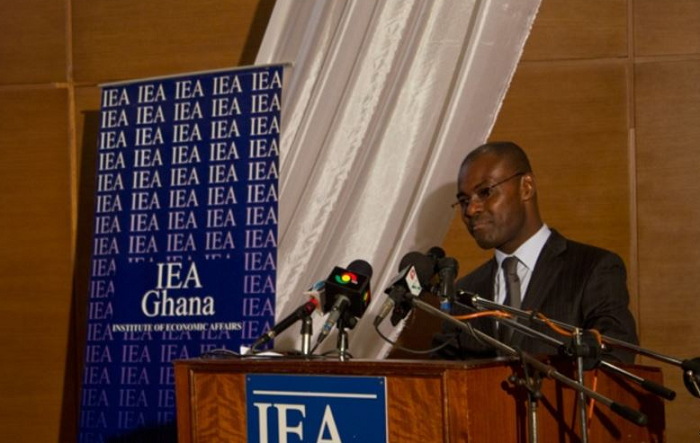
Presidential transition: History should not repeat itself
Once again, Ghana has underscored her reputation as a model African democracy – a standing which owes much to the peaceful change of governments through the ballot box.
It is, however, ironic that previous changes in government through the democratic process have exposed serious shortcomings in our country’s governance institutional framework.
Ghana’s record on political transitions is not a proud one. Due to a history of coup d’états, this country did not have any experience in handling democratic transitions until 2001 - the first time in our history when power was transferred from one democratically elected President to another through the electoral process; the second was in 2009. The transition related stories of administrative lapses, forced evictions, ad hoc car seizures, among other occurences have been well rehearsed and need no restating here. On the whole, past transitions were characterised by confrontation instead of cooperation which led to a highly polarised political environment.
Legislative reforms
In response, the Institute of Economic Affairs (IEA), in collaboration with the Ghana Political Parties Programme (GPPP), began work in 2007 to prepare a multi-partisan framework of rules and regulations to govern future transitions. In fact, there was cross-party agreement that reforming the transition process - for it to be credible and effective - called for statutory underpinning. The IEA/GPPP Transition Bill was passed unanimously by Parliament and signed into law as the Presidential (Transition) Act, 2012 (Act 845).
The primary objective of the Transition Act is to provide a framework for managing the political transfer of power from an outgoing democratically elected president to an incoming president. The legislation draws on practical lessons from Ghana's 2001 and 2009 transitions. The Transition Act has three key tenets; accountability, institutional clarity and a structured time frame for managing transitions.
With regard to accountability, the law provides for period stocktaking and a mechanism to safeguard official assets through an inventory system. The submission of hand-over notes covering a broad range of public offices is also a requirement under the transition legislation. In terms of institutional clarity, the law specifies appointees whose tenure ends with that of an outgoing President. As the Transition Team works by consensus, the law provides an orderly process for resolving transition-related disagreements. This is through an Advisory Council comprising the Speaker of Parliament as chairperson; an eminent citizen appointed by the incumbent President and another eminent citizen appointed by the President-elect. Finally, the Act stipulates a clear time frame for outgoing ministers and other officials to vacate their state accommodation (within three months after the presidential inauguration). This provides an orderly approach to a thorny issue.
The post-2012 election period presented the initial test for implementing some aspects of the Transition Act, as executive level transition occurs even with the re-election of an incumbent. After that transition, the IEA proposed a set of reforms to fine-tune the Act. This forms the crux of the Presidential (Transition) (Amendment) Bill, which was passed by Parliament in October 2016.
On December 11, 2016, the Transition Team to oversee the transfer of power from the outgoing administration of President John Mahama to the incoming administration of President-elect Nana Akufo-Addo was inaugurated. This is the first time Act 845 is being applied in the transfer of power from one democratically elected President to another. This opinion piece highlights three key issues that require careful consideration to improve accountability and a smooth transition.
Official assets
The first relates to safeguarding government assets. As accountability remains the centrepiece of the Presidential (Transition) law, a new body, the Presidential Estates Unit (PEU), has been established under the legislation and charged with undertaking a periodic inventory of official assets. Government assets in both the official and private residence of the President, Vice-President, as well as ministers are covered by the requirement. An independent Administrator-General, Mr David Yaro, heads the PEU.
However, a complete inventory of Ghana’s official assets does not exist. The PEU has been unable to fully undertake this task as it is heavily under-resourced and also faces institutional barriers. For this transition, co-ordination with the Ministry of Water Resources, Works and Housing and the Prestige Unit of the Public Works department (PWD) – which have some records of presidential residences and ministerial accommodation – remains crucial for ensuring accountability. In terms of movable assets such as vehicles, the office of the Chief of Staff may be a useful source.
Hand-over notes
Second, the Transition Law stipulates that hand-over notes covering public offices such as the presidency, ministries, departments and agencies of government are to be submitted to the Administrator-General not later than 30 days before a presidential election. This provides essential background knowledge for the incoming administration to undertake their functions. Yet, the evidence from the 2013 transition indicates that the quality of several notes submitted were substandard. As a matter of priority, the incoming team will do well to undertake a swift review of the available hand-over notes in order to address any significant gaps before incumbents leave office.
Administrator-General
Third, the law does not explicitly include the Administrator-General in the transition - in spite of his relevance in the process. It will serve the Transition Team well to include the Administrator-General as an ex-officio member given that Mr Yaro’s core responsibility is to facilitate the transition.
Effective management of political transitions remains integral to good governance. The commitment to ensuring a “smooth transfer of power” and “co-operation” expressed by both President Mahama and President-elect Akufo-Addo are encouraging. The Transition Law will not remove all the challenges relating to the democratic transfer of power. All the same, careful consideration of the key issues outlined above in its implementation, together with resourcing the PEU, should provide optimism that Ghana’s dismal history of transitions will not repeat itself.
